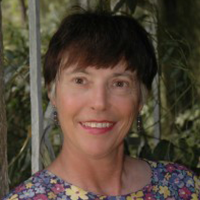My primary research puzzle focuses upon the development of democracy, how and why it develops and why it fails or breaks down. My examination of democracy includes the study of electoral politics, social movements of both the left and the right, democratic values, the creation of different kinds of social capital, and institutions, particularly the legislature. Within that puzzle, I am most interested in the role of the public and popular groups in democratic construction or breakdown. While “the people” can and may contribute positively to democracy, I am also realistic that popular groups and even electoral politics may, at times, contribute to democratic breakdown. I seek to understand the difference between these contexts in new democracies. The effort to understand democratization has forced me to look at two political constructs that normally are not part of liberal democracy: socialist revolution and fascism. I seek to understand the relationship between these two kinds of political systems and democracy.
To date, most of my empirical data collection has concentrated on Latin America. However, as democracy develops in that continent I am increasingly aware that one cannot understand democratic development in Latin America without reference to democratic development in Western Europe, particularly in the early and mid-twentieth century. Thus the intellectual puzzle of democratization has led me to study Europe, to compare the role of popular politics within socialism, fascism, and democracy, and to consider how these three relate to each other.
